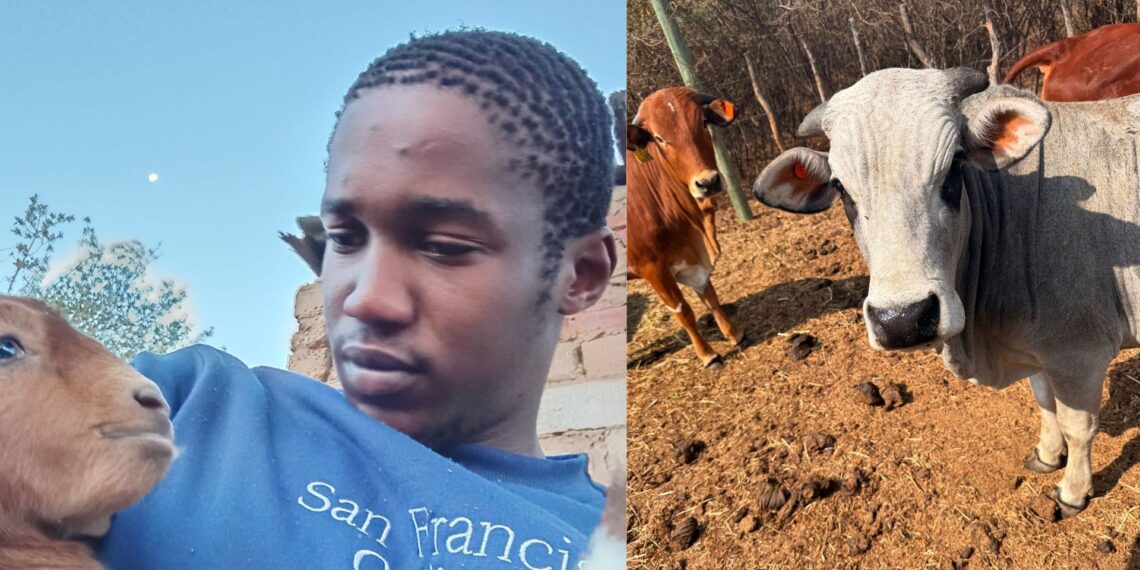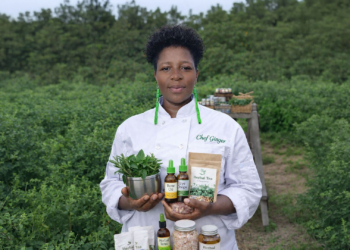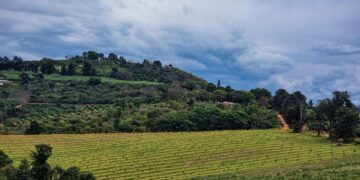Farming has been a support system for many families in Mzansi. For Amogelang Ditlopo from Bethanie in North West, it started at home, where he learned from his grandfather, who farmed livestock. When the corporate world failed to deliver the future he expected, Ditlopo returned to farming.
By applying the knowledge he had gained from his grandfather, Dikgole Dikobe from Legonyane village, he started Amdi Solutions Group in 2021, a mixed livestock agribusiness.
“My grandfather’s influence and the hands-on experience I gained have been instrumental in shaping my decision to become a livestock farmer,” he says.
His interest in livestock farming began while he was still working his nine-to-five logistics job, following GA Livestock Traders on social media and learning the details of livestock maintenance.
📢 Stand Up, Be Seen, Be Counted
We want to provide you with the most valuable, relevant information possible. Please take a few minutes to complete this short, confidential survey about your farming practices and challenges. Your feedback helps us tailor our coverage to better support the future of agriculture across Mzansi.
After losing his job during the Covid pandemic, he used R10 500 savings to buy a package of five female goats from GA Livestock Traders.
“A few months after returning home, I saw that they were offering a goat starter package for sale.” He did not have a ram at the time, which became a challenge for the growth of his business.
Ditlopo shares that his father Norman Ditlopo, was also involved in farming, mainly piggery. However, he had to sell them after his bakkie was stolen, which collapsed the business as he could no longer transport feed and water.
“That experience was painful for our family and showed me just how many challenges farmers face, but it also strengthened my determination to keep pushing forward in agriculture.”
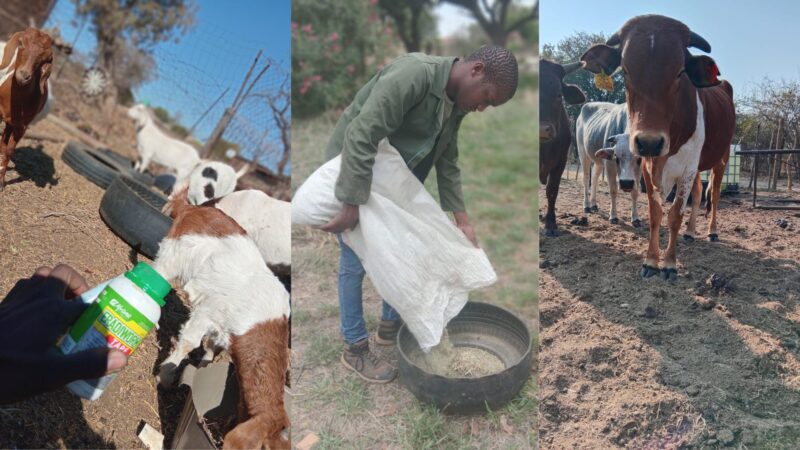
He learned early that farming is a business targeted by theft, a challenge that continues today. He has been farming goats for over four years and cattle for about three.
Ditlopo currently has Boer goats: eight ewes, one ram, and four kids, as well as Brahman cattle: seven females and one male.
Related stories
- A new breed of farmer: Mmadipilo blends Brahmans and tourism
- Tshwagong: Raising Brahmans, building dreams, feeding Mzansi
- Goat farming: Key steps to get you started and grow
- Why Kalahari Red goats are winning over SA farmers
For security, his goats are kept at a stand next door, while his cattle are housed in a kraal in the bush on communal land. He is gradually installing fencing with poles already in place, but he admits that progress is slow as it is difficult to do everything at once while farming on a small scale.
Mentorship and livestock management
What has been working for Ditlopo is the guidance he receives from mentors in business, which helps him maintain healthy livestock.
He explains that goats are dipped every two to three weeks during peak tick season (October to April) and every four to six weeks during low season (May to September). Cattle are dipped every three to four weeks year-round.
Vaccinations are administered regularly: goats receive vitamin supplements every three to four months, and antibiotics are used only when needed during outbreaks. Cattle receive vitamins every six months, with antibiotics used on a case-by-case basis to treat infections.
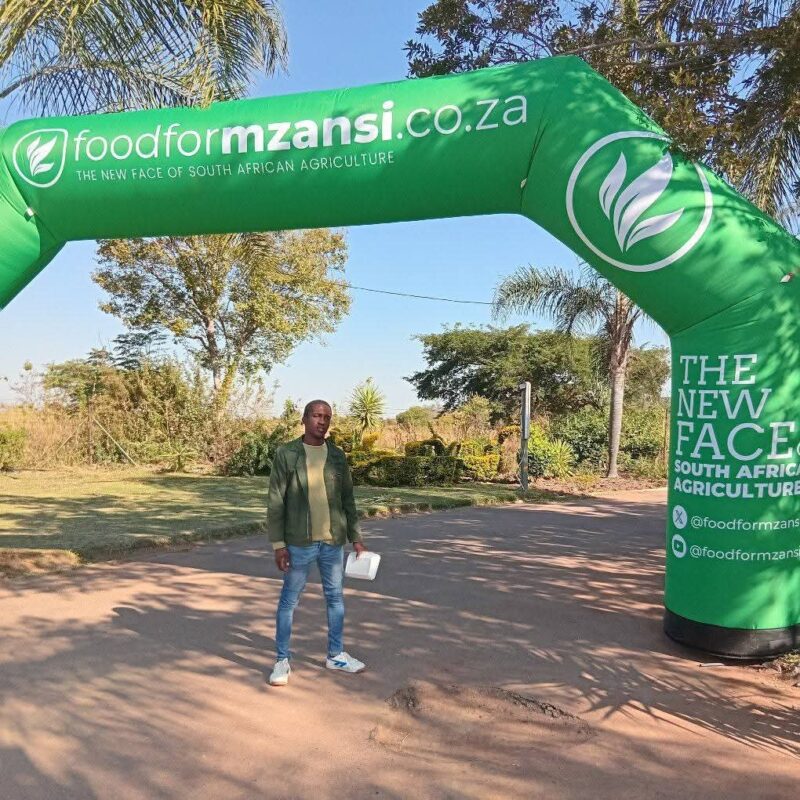
Choosing the right breeds
Ditlopo explains the importance of selecting the right breeds for your needs. “We chose Boer goats and Brahman cattle for our farming operation due to their exceptional adaptability to our local climate conditions and their potential for business growth.”
He adds that Boer goats are well-suited to the region’s semi-arid climate, with strong natural resistance to diseases.
“They thrive with minimal infrastructure and feed, which keeps production costs low. From a business angle, Boer goats grow fast, are highly fertile, and have excellent meat quality, making them a sought-after breed for meat production.”
For Brahman cattle, Ditlopo explains that the breed is highly tolerant of heat, ticks, and disease, and can survive on poor-quality forage.
“Brahmans are also known for their strength, longevity, and high fertility, which makes them popular in beef farming. Their meat quality is exceptional and fits our business needs perfectly.”
Business goals and community market
Ditlopo’s goal is to produce high-quality meat for the local market. Both Boer goats and Brahman cattle support that purpose, with their hardiness, fertility, and growth rates making them profitable and sustainable for a small-scale operation.
He tells Food For Mzansi that his customers are mostly local, with demand increasing during holidays for traditional ceremonies.
“In the future, I plan to build relationships with butcheries and livestock traders to grow my customer base.”
He believes there is a promising opportunity in meat production, and this is the growth vision he is building with Amdi Solutions Group.
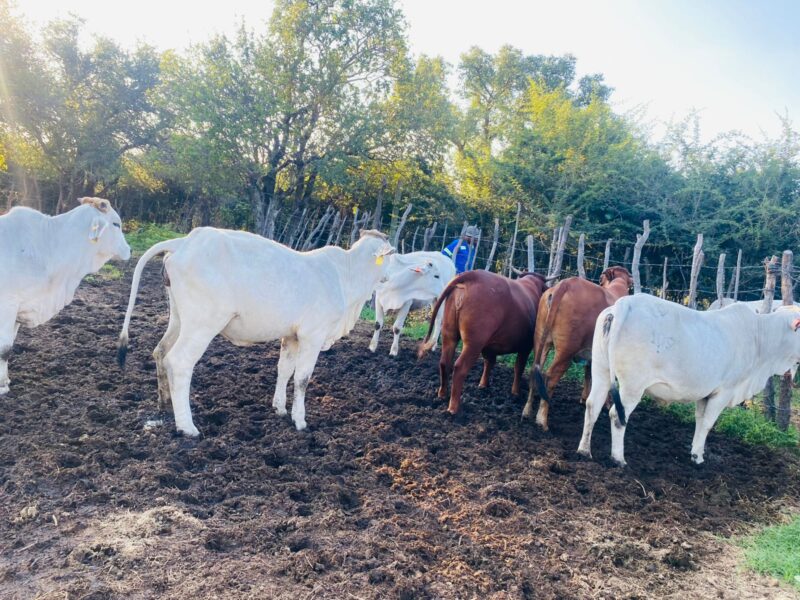
READ NEXT: Growing beyond disability: Harry farms with heart and hope



